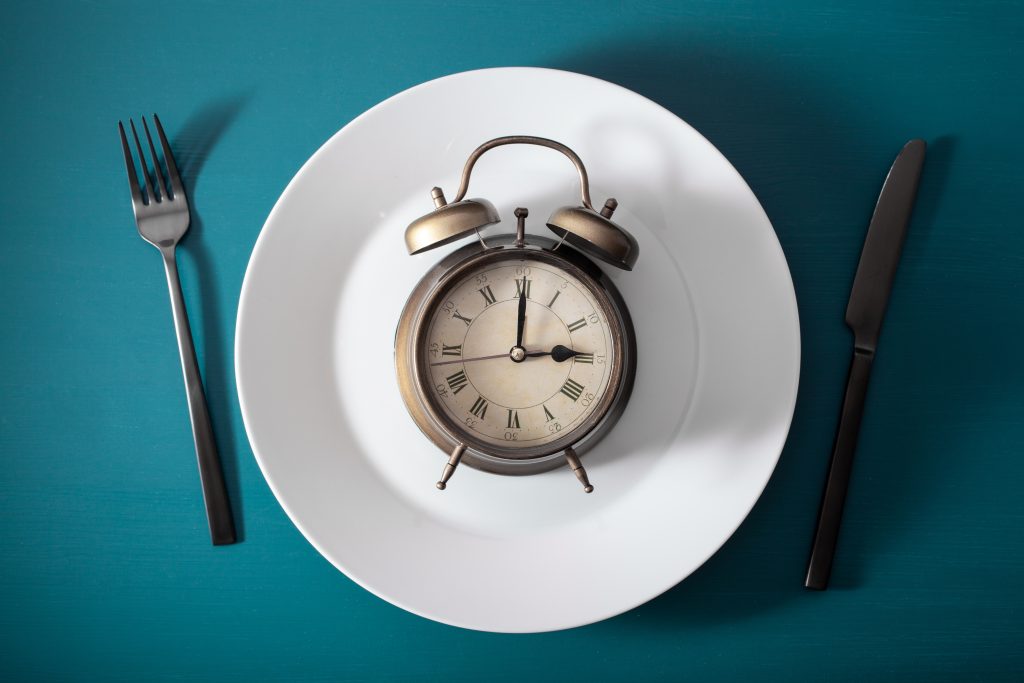Alternate day fasting is a form of intermittent fasting that can be utilized to achieve weight loss as well as other possible health benefits. If you find that this fasting method does not work for you, we recommend you look into different approaches, as it may not be the most effective form of intermittent fasting overall. Women and people who already have preexisting health issues, in particular, should exercise extreme caution.
It’s possible that the ancient feeding patterns were responsible for the multiple health benefits of fasting. Humans in the hunter-gatherer era sometimes went more extended periods without food than we do now, and the body used this time to rid itself of contaminants and possibly hazardous mutations. In addition to this cleaning system, when the body enters a state of fasting, it switches from utilizing food as fuel to using ketones, which the body creates by metabolizing fat storage. These ketones are used as fuel instead of food. We can still activate these reactions while fasting, which will lead to benefits such as weight loss.
There are numerous variations of the intermittent fasting technique, including the 5:2 diet and the 16:8 diet, to name just two. In this section, we will discuss all you need to know about fasting on alternate days in particular, including the possible advantages and disadvantages of the practice.
What Does Fasting Every Other Day Mean?

On the days that you are supposed to be fasting, you are not permitted to consume any food at all, as recommended by Dr. Nirusa Kumaran, the medical director and founder of the Elemental Health Clinic. “These alternate during the week,” she says. She explains that, for instance, if you choose to fast on Monday, Wednesday, Friday, and Sunday throughout the same week, then you eat normally on the days in between, and as a result, this cycle persists.
According to Josie Porter, a dietician who has received positive reviews on Doctify, participating in a fasting day does not always necessitate going completely without meals. She says Alternate day fasting is a sort of intermittent fasting that requires dieters to carry out a fast every other day. Alternate day fasting is a popular method for people trying to lose weight. This means that the limitation is imposed a mere fifty percent of the time. When we look at the research, we find that fasting days often consist of up to 800 calories per day, while eating to satisfaction on non-fasting days is recommended. Therefore, one should not view the non-fasting day as a “free day” during which they may “make up for the fast.”
According to a recent article published in Nutrition Reviews, intermittent fasting may be an effective method for lowering body weight in people of all sizes. However, the majority of studies have been on either whole-day fasting trials or alternate-day fasting trials. As a consequence, fasting to reduce body fat may be more suited to one of these forms of fasting.
Porter acknowledges that fasting every other day can be an effective strategy for weight loss. Many people carry out forms of intermittent fasting like alternate day fasting, with the aims of weight loss or improvements to health issues like diabetes and cardiovascular disease. The most common reasons for doing so are to lose weight and to improve health. In general, the research seems to imply that fasting every other day is just as good as more traditional weight management strategies, such as making a calorie deficit every day. It is interesting to note that, of all the intermittent fasting regimens, such as time-restricted eating, the fasting schedule known as every other day appears to have a small benefit.
A study that was published in the journal Autophagy reveals that the process of Autophagy can be triggered by fasting for a shorter period of time, such as when one fasts every other day. Autophagy is a stage of starvation that the body enters when fasting. In this condition, the energy that is normally utilized to digest food can be used on cellular repair and cleaning waste and free radicals from our bodies. Autophagy occurs when the body is deprived of food. According to a study published in Carcinogenesis, Autophagy may help prevent cancer and play an important role in the suppression of tumors, making it a viable subject for future research on cancer.
How To Fast On Alternate Days

On the days when you are supposed to be fasting, you either refrain from eating altogether or restrict the number of calories you take to somewhere between 500 and 800. On days when you are not required to fast, you are free to consume any foods you like. Alternate day fasting is a more strenuous approach to intermittent fasting than other methods, such as the 5:2 method or time-restricted eating. Due to the challenging nature of alternate day fasting, some people opt to eat one meal at the beginning of their fasting days rather than completely abstaining from food on those days. It is crucial to stay hydrated during fast days, and you are allowed to consume an unlimited number of calorie-free beverages, such as black tea or coffee. These beverages can help you stay motivated while fasting by keeping your energy levels up.
Is It Healthy To Fast Every Other Day?

According to the findings of a study that the Obesity Society carried out, women who were of a healthy weight started to have an impaired glucose response when they began to fast every other day. So it’s possible that time-restricted eating is a better and healthier alternative for women than fasting every other day.
Because of the potential impact that fasting every other day can have on a woman’s menstrual cycle, Kumaran advises that women who do it do so with caution. She explains that because of the monthly menstrual cycle and the hormonal variations that women experience, women may be more sensitive to the effects of fasting. Women also have a greater sensitivity to changes in energy balance, which can generate an excessive response to stress. Fasting can induce this response. This can therefore have impacts that are counterproductive to the intended health benefits.
Alternate day fasting is one of the more significant dietary shifts one can make and should be approached with extreme caution if the individual in question has a mental illness or an ongoing physical illness. If you have any underlying issues, it is strongly advised that you do not attempt alternate-day fasting on your own without the supervision of your primary care physician or a nutritionist.
Porter also notes that those taking medication for their diabetes or blood pressure should always get counsel from their general practitioner or dietitian before starting any restricted diet. This is because consuming very few calories or none can make these treatments less effective.
This text is intended solely for educational purposes and does not provide professional medical guidance.


